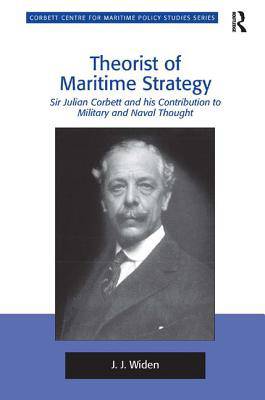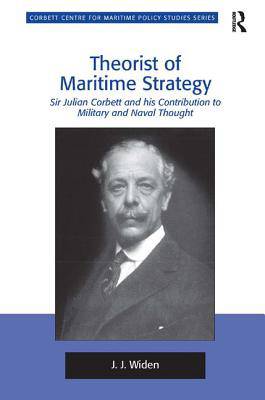
Door een staking bij bpost kan je online bestelling op dit moment iets langer onderweg zijn dan voorzien. Dringend iets nodig? Onze winkels ontvangen jou met open armen!
- Afhalen na 1 uur in een winkel met voorraad
- Gratis thuislevering in België vanaf € 30
- Ruim aanbod met 7 miljoen producten
Door een staking bij bpost kan je online bestelling op dit moment iets langer onderweg zijn dan voorzien. Dringend iets nodig? Onze winkels ontvangen jou met open armen!
- Afhalen na 1 uur in een winkel met voorraad
- Gratis thuislevering in België vanaf € 30
- Ruim aanbod met 7 miljoen producten
Zoeken
Theorist of Maritime Strategy
Sir Julian Corbett and his Contribution to Military and Naval Thought
J J Widen
€ 305,45
+ 610 punten
Uitvoering
Omschrijving
Since its publication in 1911, Sir Julian's Corbett's Some Principles of Maritime Strategy has remained a key document within naval strategic thinking. Yet despite his undoubted influence, Corbett's theories have not been subjected to scientific review and systematic comparison with other naval thinkers. In this assessment, Dr Widen has provided a fresh interpretation of Corbett's legacy and his continued relevance as a classic theorist of naval war. Divided into three parts, the book begins with a brief biographical overview of Corbett's life, highlighting in particular his bibliographic history and the influences on his thinking. The latter two sections then describe and assess Corbett's views on military and naval theory, respectively. Together these two parts represent his overall theory of maritime strategy, including his conception of limited war, his intellectual debt to Clausewitz, command of the sea, his critic of decisive battle, as well as the different methods of naval operations. By means of a thorough assessment of Corbett's theory of maritime strategy, Dr Widén highlights the continued relevance of his theories. Both the strengths and shortcomings of Corbett's thinking are discussed and reflections offered on their intellectual, practical and doctrinal value. In so doing, Dr Widen has written a book that deserves to be read by anyone with an interest in the past, present or future of maritime strategy.
Specificaties
Betrokkenen
- Auteur(s):
- Uitgeverij:
Inhoud
- Aantal bladzijden:
- 190
- Taal:
- Engels
- Reeks:
Eigenschappen
- Productcode (EAN):
- 9781409433279
- Verschijningsdatum:
- 28/03/2012
- Uitvoering:
- Hardcover
- Formaat:
- Genaaid
- Afmetingen:
- 156 mm x 234 mm
- Gewicht:
- 449 g

Alleen bij Standaard Boekhandel
+ 610 punten op je klantenkaart van Standaard Boekhandel
Beoordelingen
We publiceren alleen reviews die voldoen aan de voorwaarden voor reviews. Bekijk onze voorwaarden voor reviews.











